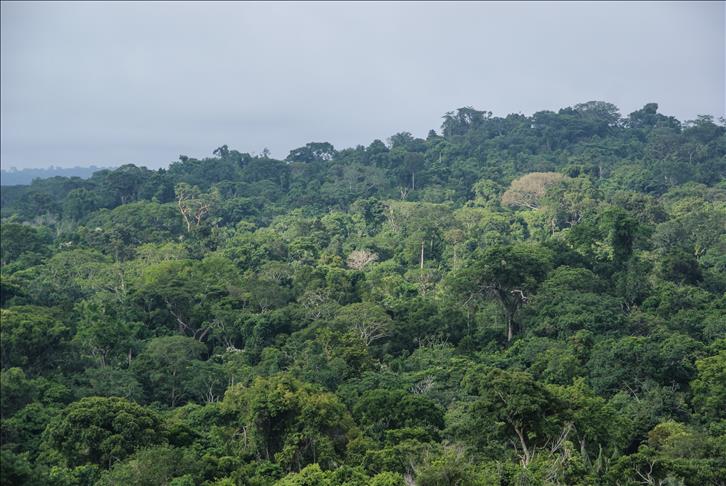
By Alex Pashley
LIMA, Peru
Peru must grant further land titles to Amazonian tribes as a last resort to halting severe deforestation, the country’s main indigenous group reiterated Thursday.
The government should award 49 million acres (20 million hectares), nearly 30 percent of its rainforest, to 1,170 communities, said Alberto Pizango, president of the Interethnic Association for the Development of the Peruvian Rainforest, or AIDESEP.
Awarding “legal protection of territories” was the only way for Peru to curb illegal logging and meet carbon emission targets, Pizango said in a press conference in Lima.
“Indigenous communities need to safeguard 20 million hectares in order to slow the climate crisis.”
Peru lost 246,000 hectares to deforestation in 2012, twice the previous year’s total, as expanded agriculture and logging of hardwoods hacked away at the forests’ ability to contain global carbon emissions.
Awarding titles to local communities would result in more sustainable forestry management and deter illegal logging, experts say.
Up to 80 percent of all of Peru’s timber exports may be illegal, the World Bank estimates, and costs the Andean country $250 million annually, according to Interpol.
The scale of the illicit activity was underlined last month when four environmental activists were slain by suspected illegal loggers in Ucayali, near the Brazilian border.
With the world’s fourth largest share of tropical forests and 10 to 15 percent of the planet’s species, Peru is especially vulnerable to climate change.
In September, the government signed a $300 million agreement with Norway, providing financing to slow deforestation by 2021.
But with little beyond subsistence farming in remote Amazonian regions, the felling of valuable hardwoods remains attractive, especially considering an absentee state and patchy customs controls, as cedar and mahogany make it to prime export markets in China and the United States.
“The irony is that a poor villager wants to do it, given that the state doesn’t support them, nor help them to be able to buy a pencil or exercise book,” Pizango said.
Illegal logging has seen criminal networks with links to drug trafficking move in to regions, increasing violence and threats those who stand in the way.
“Illegal logging opens the way for deforestation,” said Julia Urrunaga, Peru director of the Environmental Investigations Agency, adding that after forests are cleared of hardwoods, normal logging ensues in areas which otherwise would have been left alone.
Paths established in previously untouched areas exacerbate the process.
Peru has committed to award just 5 million hectares in titles to native communities, after more than 30 years of petitioning - a quarter of AIDESEP's request - though the details of such a rollout remain unclear, Urrunaga said.
About 18 million hectares around communities remain untitled, according to the Safe Territories Collective, which spans 26 civil society institutions.
The government is in the process of awarding another 5 million hectares in timber concessions but land titles wouldn’t be enough to contain logging on its own.
Providing communities with greater vigilance and building up the state’s presence is the “only way to safeguard the forest,” Pizango added.
As Peru prepares to host the 20th Conference of the Parties summit in December as part of the United Nations Framework Convention on Climate Change, the country's green credentials are under scrutiny.
Pizango expressed disappointment that AIDESEP's proposals have been referred away from the Peru's cabinet, containing the agriculture and environment ministries, to the national ombudsman’s office dealing in conflict resolution.
A reform package passed in July to spur private investment in its extractive industries came under criticism after environmental study assessment times were cut.
Anadolu Agency website contains only a portion of the news stories offered to subscribers in the AA News Broadcasting System (HAS), and in summarized form. Please contact us for subscription options.

